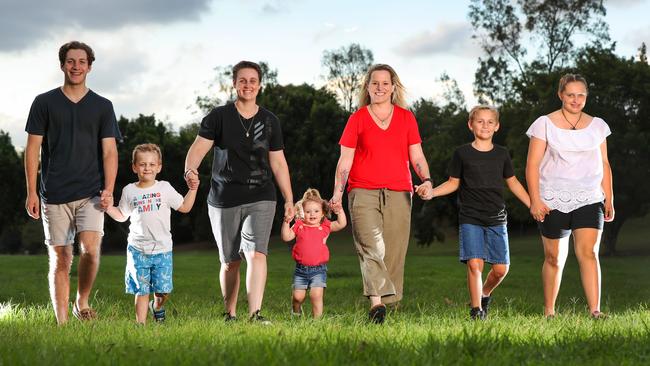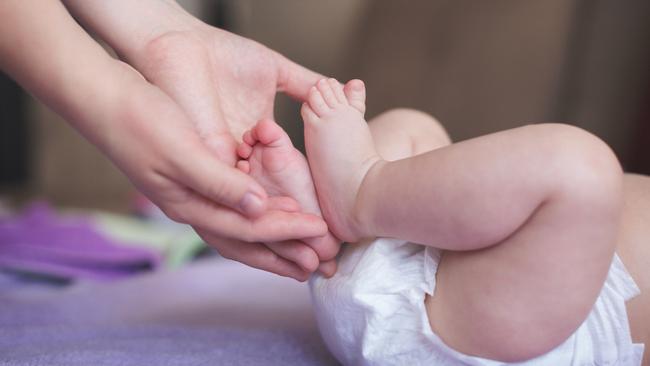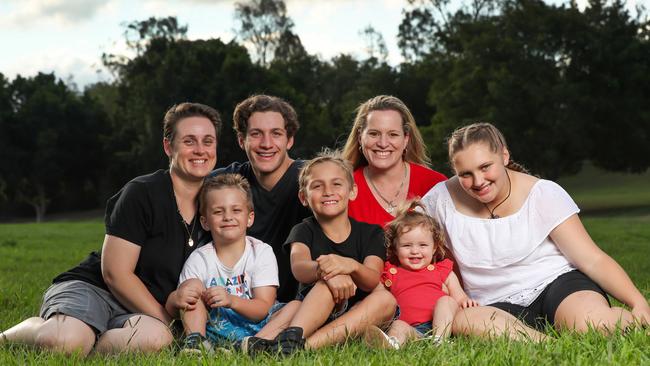Sperm donor laws must change after this
For too long we’ve focused on an adult’s choice to use sperm donors, writes Xavier Symons. But with 48 people in one city discovering they are long-lost siblings fathered by one donor, we need to think of the kids.
Rendezview
Don't miss out on the headlines from Rendezview. Followed categories will be added to My News.
Gamete donation, or the donation of sperm and eggs to fertility clinics, gives infertile couples and single parents the opportunity to conceive a child.
Tens of thousands of children have been conceived in Australia over the past four decades via donated sperm and eggs. Yet donor conception is vastly more complex than the images of happy parents and little bundles of joy that IVF clinics use to advertise.
Things get complicated when, for example, the same sperm donor fathers 48 children, which is exactly what happened in a fertility clinic in Brisbane over the past fifteen years, according to The Courier-Mail.
RELATED: Mum tells of dangers of sperm donor kids meeting ‘diblings’
A blue eyed Aussie surfer, only identified by a serial number, repeatedly donated sperm at the same clinic over a period of several years where his samples were used by almost 50 women.
Years later, some of the donor’s biological children met by accident at a daycare facility, only to discover that they are diblings (donor conceived siblings).
The women who used the man’s sperm have expressed their “shock” at discovering that other children in their neighbourhood are biological half-siblings of their own kids.

It’s hard to imagine how the kids themselves would have reacted to discovering a “dibling” in the playground. Presumably, they were confused and, perhaps, distressed.
Things get even more complicated when you consider the potential adult ramifications. Some experts have warned that these children may unwittingly enter into a romantic relationship with a brother or sister unknowingly, particularly as there is such a large concentration of children from the same donor within the one geographical area.
To some extent, though, these speculations are irrelevant. It’s important that we realise the difficulties that these kids face.
RELATED: Sperm donor in Australia to father more children
Donor conceived children often struggle to come to terms with the fact that they were conceived using sperm or eggs from someone they have never met — and may never get the chance to meet. Often, they were conceived before the practice of anonymous donation was abolished, and so have no prospect of ever learning who their donor parent is. Just like children who are adopted, many donor children experience a sense of fractured identity as a result of not knowing the identity of their biological parent(s).

And while evidence suggests that donor-conceived kids are as psychologically healthy as children conceived by natural means, there is an undeniable desire felt by many to know their heritage.
Parents must also decide when and if to tell their children that they were conceived using donated gametes. The internet is awash with testimonies of children who presumed they were biologically related to the people they called “mum” or “dad” for years, only to find out that their biological mother or father was a gamete donor. One British man told the BBC recently that he felt that his “entire existence was a lie” after he found out by accident in conversation at age 22 that he was donor conceived.
RELATED: What it’s really like to be an egg donor
Some parents are afraid to tell their children because of fear of the psychological impact it might have on them. Others just don’t believe they have a duty to tell their kids.
To avoid anything like the Brisbane case ever occurring again in the future, there needs to be closer scrutiny of fertility clinics to limit the number of children whom one donor can father. Kids who are donor conceived also deserve the liberty of knowing how they were born and who their parents really are.
Regulation of gamete donation in Australia could be described as inconsistent at best. Sperm donors have been restricted to 10 women in Victoria and South Australia, and only five in NSW. Yet there is no law in Queensland that determines a limit.

States and territories also differ in the way that they regulate the disclosure of information of gamete donors who donated under conditions of anonymity. Victoria has controversially allowed donor conceived children to access identifying information about their biological parents once they turn 18 — even when donors donated under conditions of anonymity. This allowance has not been extended to other states and territories.
There has been a concerted attempt to reform the system is recent years, and this must continue.
RELATED: Single women use most sperm donations in Victoria but local donors drop off
We need to see a national register of donors and a consistent approach that protects the rights of offspring.
For so long, the narrative has been written from the perspective of parents desperate to have a child of their own. The mantra of “the right to have a child” has distracted our attention from the children who grow up not knowing who their biological parents are, or how many siblings they have. It’s only now we can see that in doing so, we have failed to consider the rights and interests of the children.
It’s time to take a more mature approach to the regulation of assisted reproduction, and to recognise in law the dignity and interests of donor conceived children.
Xavier Symons is a research associate at the Institute for Ethics and Society, University of Notre Dame Australia.
Originally published as Sperm donor laws must change after this


